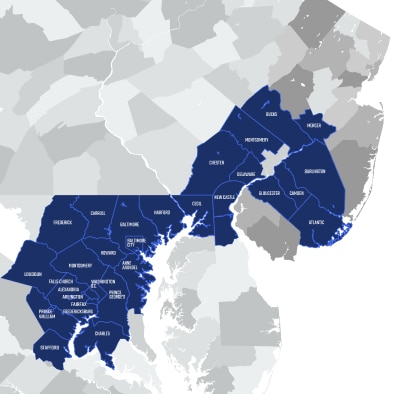The Lowdown on Low Water Pressure: What You Can Do to Fix It
 When you don’t have enough water pressure, it can be tough to clean your dishes or take a shower.
When you don’t have enough water pressure, it can be tough to clean your dishes or take a shower.
Low water pressure isn’t just an inconvenience; it can indicate trouble in your home’s plumbing system.
What is Water Pressure?
Water pressure is measured in pounds per square inch or psi. The pressure is measured where the water enters your home from the main water valve, whether from a well or a municipal water main.
Water pressure is important, especially when you’re using several fixtures and appliances simultaneously. Imagine if you couldn’t take a shower while the dishwasher was running! The correct water pressure makes sure you can do both at the same time.
What Happens If Water Pressure is Too High?
Water pressure that’s set too high can weaken your plumbing, resulting in cracked or leaky pipes and straining plumbing seals and appliances in your home.
Unnecessarily high water pressure also leads to water waste and unusually high water bills.
What Happens if Water Pressure is Too Low?
Low water pressure often starts at your water source, meaning the pressure could be disrupted by a broken water main. However, low water pressure can be localized to certain areas within your home.
Take a look at these low water pressure issues and how you can solve them:
You Have Low Water Pressure in the Shower
Instead of getting a steady stream from your showerhead, the water comes out in an erratic spray or barely trickles out.
This is likely caused by a plumbing fixture restricting water from coming out of the tap. Over time mineral deposits can block the flow of water through the fixture. Sometimes you can even see the limestone and rust on the showerhead.
Clean your showerhead by removing it and clearing the filter inside. You can also soak your showerhead in a bowl of white vinegar and water overnight.
If your showerhead is clean, but the water pressure remains too low, the low water pressure could be caused by a flow restrictor used to limit water consumption. You can adjust the pressure regulator to increase flow.
The Water Pressure Suddenly Drops
When you turn on your tap and get adequate water pressure but then it suddenly drops, this could mean you have an issue with a clogged pipe.
Water supply lines can clog with minerals, rust, and other materials. The buildup restricts water flow and, therefore, water pressure.
Clearing a water line clog is the job of a professional plumber who will assess if the clog can be cleared or if the clog has damaged the pipe and must be replaced.
You Have Reduced Hot Water Pressure
Are you noticing that your water pressure drops when using hot water? This could be caused by:
- An undersized water heater
- Sediment buildup in the water heater
- Sediment and mineral buildup in hot water pipes
A professional plumber can inspect your water heater to determine the cause of your low water pressure issue.
You Have Low Water Pressure from Corroded Plumbing
Low water pressure at your tap could be a problem with leaks in your lines. Older plumbing systems can corrode over time from things like sulfate and sediment.
A thorough plumbing inspection can identify where leaks have developed within your plumbing system and repair or replace the affected pipes.
Contact Len The Plumber for All Your Plumbing Service Needs
If your home needs a boost in its water pressure, Len The Plumber has just the solution. We offer water booster pump installation that can increase the water pressure in your home.
Call (800) 950-4619 today to schedule plumbing services in Baltimore, MD, Washington, D.C., Northern Virginia, Pennsylvania and the Delaware Valley, and New Jersey.
From Len The Plumber Heating & Air
 Coupons
Coupons 

